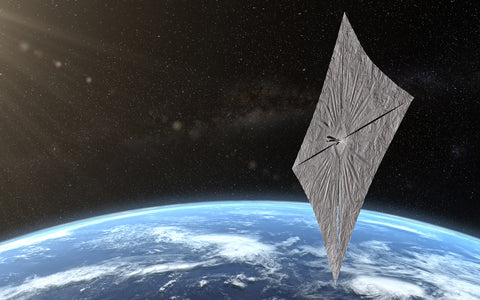Rising global temperatures caused by climate change is of grave concern to everyone who calls Earth home. In order to manage it, we need to be able to measure it. Through the use of satellites, we are able to measure all important climate related data such as Earth’s temperature, sea levels, glacial melt, greenhouse gasses, the hole in the ozone and much more. Private and public companies alike are utilizing this space technology to better understand the changes that are happening on Earth and provide up-to-date information to policy makers around the globe.
NASA alone has participated in dozens of Earth Science related missions that inform us about changes happening around the globe. For example, NASA satellites ASTER and Landsat focus specifically on the changes in our polar ice caps. The European Space Agency lays claim to the most advanced pollution monitoring satellite system in the world, and the Japan Aerospace Exploration Agency has recently launched its own precise greenhouse gas monitoring satellite.
Beyond greenhouse gas emissions, these satellites provide the most accurate and up to date information on the consequences of climate change as well. That includes desertification, deforestation, coral reef bleaching, ocean pollution. All information provided is essential for us to understand in order to move forward with changes for the better.
Some may find it surprising that the NASA has taken such a prominent role in climate change research. What will surprise you further is that NASA was officially given authority to carry out Earth science related research, including monitoring pollution, climate change, and the ozone layer, back in 1976. During that time, we gained insight into the threats of greenhouse gases by studying other planets. Venus has 300 times more carbon dioxide in its atmosphere than Earth. This has resulted in extremely high and unlivable surface temperatures on that planet.
These observations preformed from space also have the potential to predict more accurate predictive models of our future climate and the outcomes. Based on historical data from the past several decades, planetary science, and the precise data being observed by current satellites orbiting our planet, we are slowly getting picture of the future of our planet. The full consequences of global warming are still unknown, but the more accurate information we can gather, the better we can convince leaders around the globe to act.
And don’t forget, this week is the Global Climate March! Go to https://350.org/global-climate-march/ to find out where a march is happening near you!






